- 全部删除
 您的购物车当前为空
您的购物车当前为空
AIM2
(4)
AhR
(30)
Antiviral
(146)
Arginase
(14)
Aryl Hydrocarbon Receptor
(31)
B7
(1)
BCL6
(2)
CCR
(89)
CD38
(9)
CD73
(16)
COX
(419)
CXCR
(84)
Cell wall
(7)
Complement System
(61)
FKBP
(11)
FLAP
(12)
Galectin
(12)
Histamine Receptor
(265)
IFNAR
(25)
IKZF
(3)
IL Receptor
(262)
IRAK
(39)
Immunology/Inflammation related
(109)
Interleukin
(73)
LAG-3
(9)
LTR
(41)
MALT
(7)
MHC
(1)
MRP
(28)
Mucin
(6)
MyD88
(11)
NADPH-oxidase
(33)
NO Synthase
(158)
NOD
(46)
NOD-like Receptor (NLR)
(77)
NOS
(125)
Nrf2
(92)
PD-1/PD-L1
(113)
PGE Synthase
(21)
PSMA
(17)
Prostaglandin Receptor
(200)
Pyroptosis
(18)
ROS
(163)
Reactive Oxygen Species
(305)
STING
(53)
TLR
(112)
TROP2
(4)
Thrombopoietin Receptor
(4)
cGAS
(9)
gp120/CD4
(8)
STING
干扰素基因刺激因子(STING),由STING1基因编码。STING在先天免疫中起重要作用。当细胞感染细胞内病原体,STING会诱导I型干扰素的产生。
T10065L2734858-36-5In house
2',3'-cGAMP sodium (2'-3'-cyclic GMP-AMP sodium) 是细胞天然免疫中第二信使,在 DNA 结合条件下由 cGAMP 合成酶 (cGAS) 催化形成。2',3'-cGAMP sodium 可与 STING 结合形成二聚体,诱导 IFN-β 及其他细胞因子的产生和表达。
- ¥ 2530
规格
数量
Dazostinag disodium
T724822553413-93-5In house
Dazostinag disodium (TAK-676) 是合成的新型干扰素基因 (STING) 激动剂,触发STING 信号通路激活和 I 型干扰素激活。Dazostinag disodium (TAK-676) 也是一种免疫系统高效调节剂,具有完全消退和持久记忆的 T 细胞免疫功能并且能够促进持久的干扰素依赖性抗肿瘤免疫反应。
- ¥ 4490

规格
数量
diABZI STING agonist-1 (Tautomerism)
T110352138498-18-5
diABZI STING agonist-1 (Tautomerism) (diABZI STING agonist (Compound 3)) 是一个选择性的干扰素基因刺激受体 (STING) 的激动剂,其在人和小鼠中的 EC50 值分别为 130 nM 和 186 nM。。
- ¥ 1010
规格
数量
T55162138299-34-8In house
diABZI STING agonist-1 trihydrochloride 是选择性的干扰素基因刺激受体(STING)激动剂,在人和小鼠中都能发挥作用,其 EC50值分别为 130 和 186 nM。
- ¥ 1420
规格
数量
Vadimezan
T6273117570-53-3
Vadimezan (DMXAA) 是一种血管破坏剂,一种鼠 STING 激动剂,也是一种细胞因子如 I 型 IFN 的诱导剂。Vadimezan 具有抗肿瘤活性,可以诱导肿瘤中的血流快速停止,但不影响正常组织中的血流。
- ¥ 393
规格
数量
H-151
T5674941987-60-6
H-151 是一种 STING 拮抗剂,具有高效性和选择性。H-151 与 STING 的 Cys91 共价结合,抑制 Cys91 的棕榈酰化,从而抑制 STING 的活性。H-151 可用于体内外自身炎症性疾病的研究。
- ¥ 275
规格
数量
Omaveloxolone
T69191474034-05-3
Omaveloxolone (RTA-408) 是一种抗氧化炎症调节剂,可激活Nrf2并抑制一氧化氮。它通过抑制 STING 依赖的 NF-κb 信号通路,来抑制破骨细胞的生成。
- ¥ 549
规格
数量
Cyclic-di-GMP disodium
T369832222132-40-1
Cyclic-di-GMP disodium (5GP-5GP disodium) 是一种 STING 激动剂,也是细菌的第二信使,参与原核生物的多种过程,包括生物膜的形成、运动、和细胞周期的进展。Cyclic-di-GMP disodium (5GP-5GP disodium) 对癌细胞显示出抗增殖活性,可诱导 CD4 受体表达升高和细胞周期停滞,是可以开发预防或治疗癌症的新型治疗剂。
- ¥ 1590
规格
数量
MSA-2
T8798129425-81-6
MSA-2 是可口服的非核苷酸 STING 激动剂,MSA-2 的非共价体系二聚体与 STING 纳摩尔亲和力结合。它在同基因小鼠肿瘤模型中显示抗肿瘤活性,与抗 PD-1 协同作用,可刺激肿瘤分泌干扰素-β,诱导肿瘤消退,具有持久的抗肿瘤免疫。[3]
- ¥ 987
规格
数量
SR-717
T86552375421-09-1
SR-717 是一种 cGAMP 的类似物,一种非核苷类 STING 激动剂,可以诱导 STING 形成“封闭”的激活构象。SR-717 具有抗肿瘤活性,可以促进免疫细胞的激活以及抗原的交叉提呈。
- ¥ 758
规格
数量
ADU-S100 ammonium salt
T10252L21638750-96-5
ADU-S100 ammonium salt 是干扰素基因刺激物的激活剂。 ADU-S100 ammonium salt 可导致有效的全身性肿瘤消退和免疫。
- ¥ 5580
规格
数量
diABZI STING agonist-1
T737462138299-33-7In house
diABZI STING agonist-1 是一种具有选择性和高效性的干扰素基因刺激受体 (STING) 激动剂,具有潜在的抗肿瘤和抗炎活性,可用于研究癌症。
- ¥ 1290
规格
数量
C-176
T5154314054-00-7
C-176 (STING inhibitor 1) 是一种 STING 抑制剂,具有选择性和血脑屏障渗透性。C-176 可以抑制由 STING 介导的 IFNβ 生成,具有抗炎活性。
- ¥ 297
规格
数量
CCCP
T7081555-60-2
CCCP (Carbonyl Cyanide m-Chlorophenylhydrazone) 是一种氧化磷酸化 (OXPHOS) 抑制剂,线粒体质子载体解偶联剂。CCCP 抑制 STING 及其下游信号分子 TBK1 和 IRF3 的激活。
- ¥ 137
规格
数量
SN-011
T91372249435-90-1
SN-011 (GUN35901) 是选择性 STING 抑制剂,可与环状二核苷酸 (CDN) 竞争 STING 二聚体的结合口袋,从而阻断 CDN 结合和 STING 激活。它用于 STING 驱动的自身免疫和炎症性疾病的研究,抑制 STING 信号传导的 IC50值为 76 nM。
- ¥ 363
规格
数量
STING activator Compound 53
T98532259624-71-8
基于 oxindole 核心结构的 STING activator Compound 53 在永生化细胞和原代细胞中表现出强大的 STING(人 EC50 185 nM)的靶向功能激活以及与 STING 激活一致的细胞因子诱导指纹。
- ¥ 328
规格
数量
ADU-S100
T10252L31638241-89-0
ADU-S100 (MIW815)是一种环二核苷酸(CDN)类的STING激动剂,可显著诱导IFN-β和促炎细胞因子TNF-α、IL-6、MCP-1的产生,诱导TBK1和IRF3磷酸化,具有抗肿瘤作用。
- ¥ 5800
规格
数量
Cridanimod
T531738609-97-1
Cridanimod (10-carboxymethyl-9-acridanone, CMA) 是一种是小分子免疫调节剂和干扰素诱导剂,是一种孕酮受体激活剂,能够诱导 IFNα和IFNβ的表达,显著增加 PR 的表达。
- ¥ 248
规格
数量
diABZI-C2-NH2
T395972137975-93-8
diABZI-C2-NH2 是一种干扰素基因 STING 的激动剂,可调节 STING 依赖性 I 型干扰素的产生,可用于研究 STING 介导的疾病。
- ¥ 4399
规格
数量
Gelsevirine
TN167838990-03-3
Gelsevirine 是一种新型的 STING 特异性抑制剂,是来自 Gelsemium elegans 的生物碱,具有抗焦虑和抗增殖活性,抑制暴露于 STING 激动剂的巨噬细胞中的干扰素和炎性细胞因子诱导,可减轻脓毒症中与 STING 相关的炎症。
- ¥ 1960
规格
数量
STING agonist-4
T130152138300-40-8
STING agonist-4 是 是干扰素基因 (STING) 受体刺激剂的激动剂,IC50为 20 nM。
- ¥ 1330
规格
数量
STING agonist-1
T8328702662-50-8
STING agonist-1 (G10)是一种人类特异性 STING 激动剂,可引发针对新兴甲病毒的抗病毒活性。它抑制甲病毒属 VEEV 复制,IC90值为 24.57 μM。
- ¥ 315
规格
数量
STING-IN-2
T9028346691-38-1
STING-IN-2 (C-170) 是一种 STING 共价抑制剂,可抑制小鼠 STING (mmSTING) 和人类 STING (hsSTING),可用于自身炎症性疾病的研究。
- ¥ 123
规格
数量
转到第1页
/ 2 页






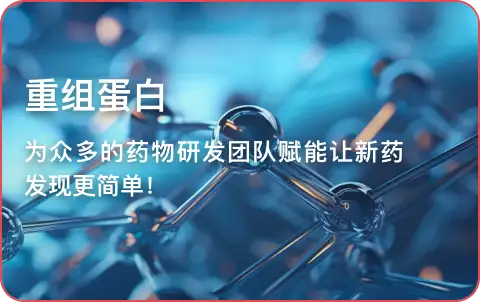
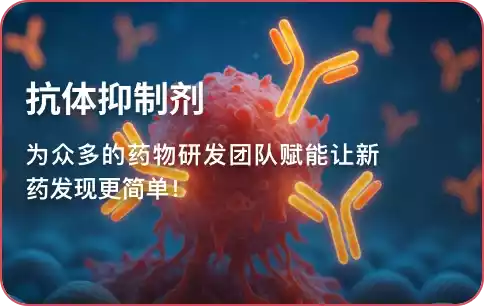
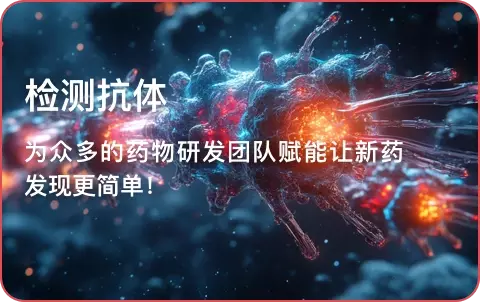
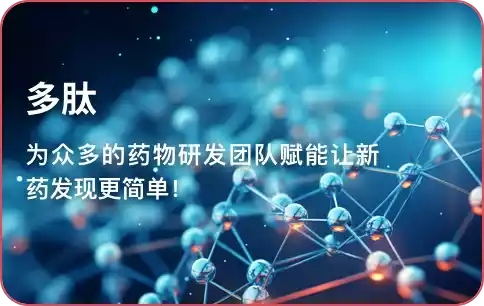
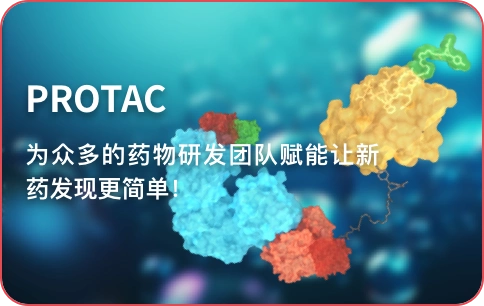
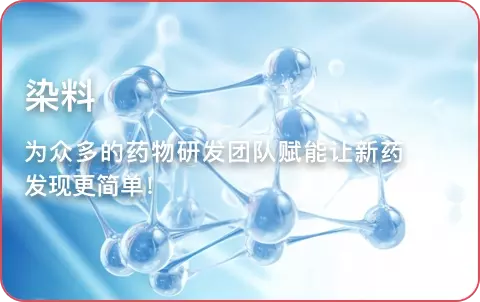


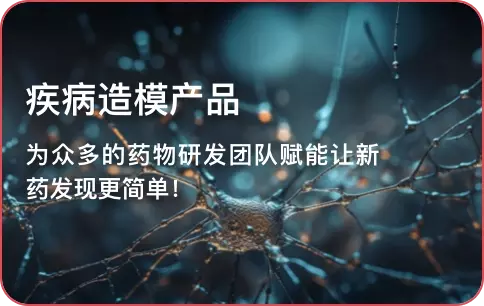
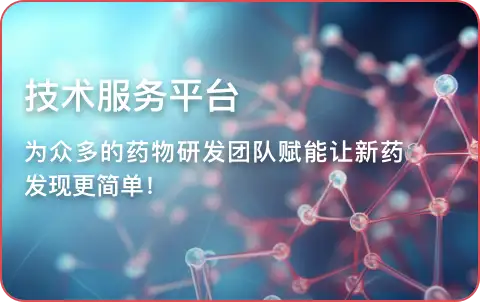
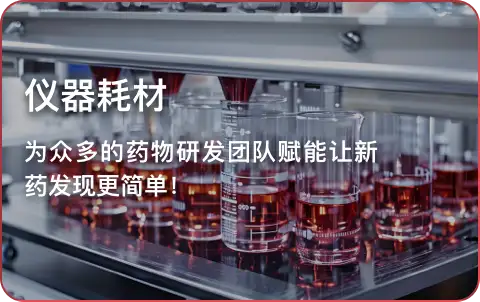

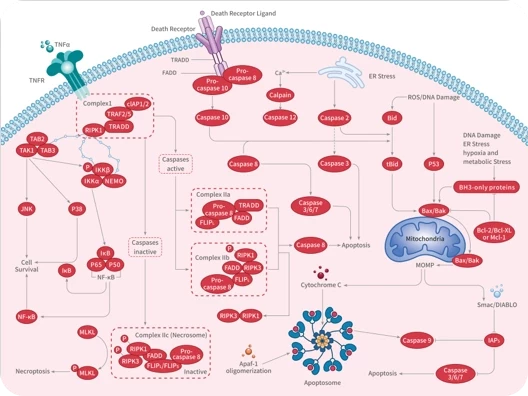
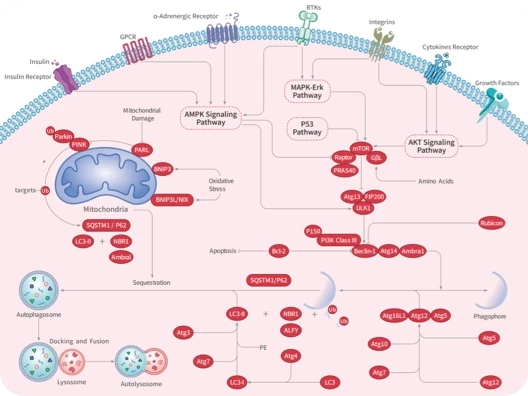

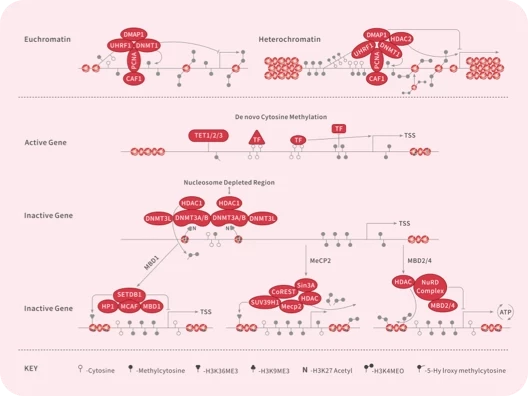
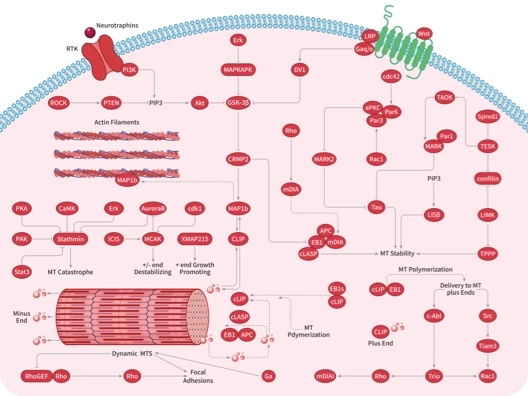
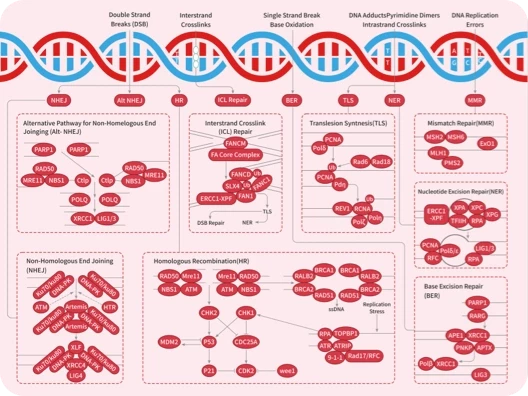
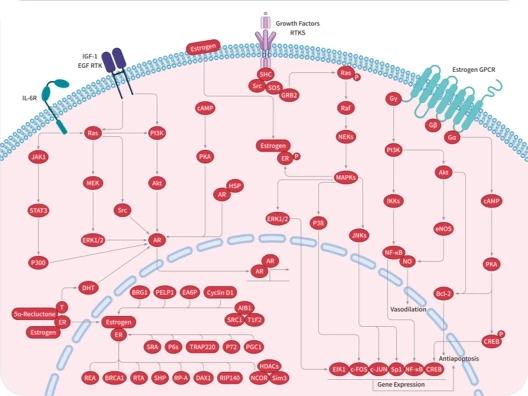
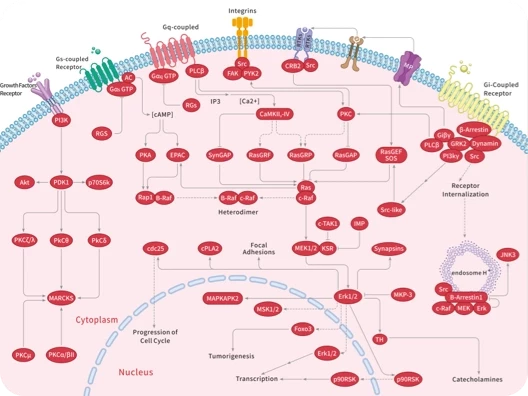
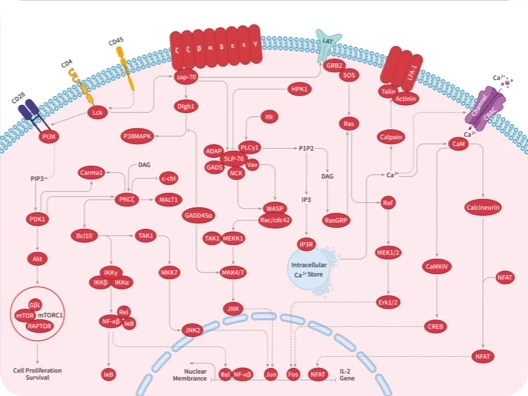
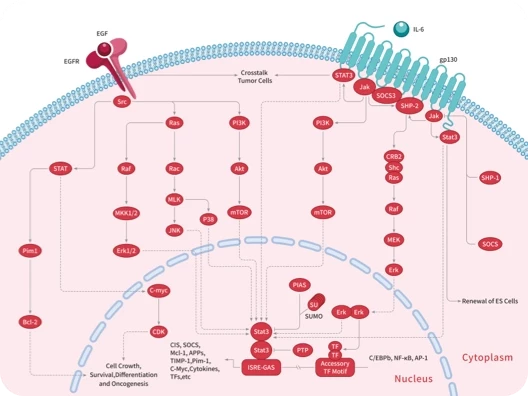
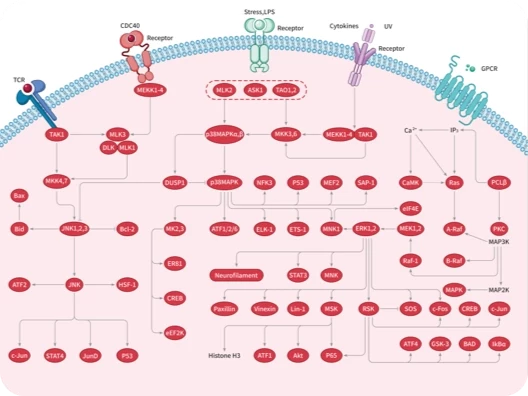
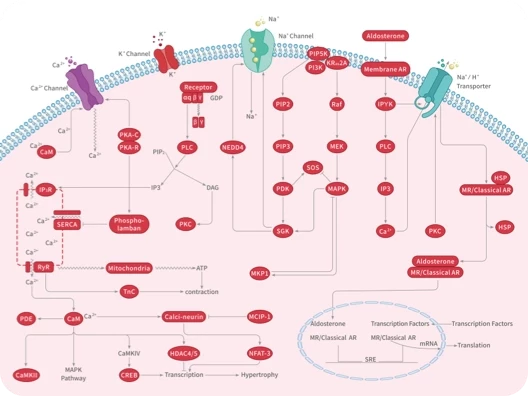
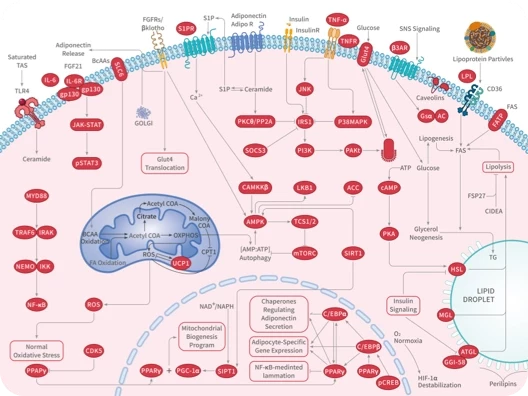
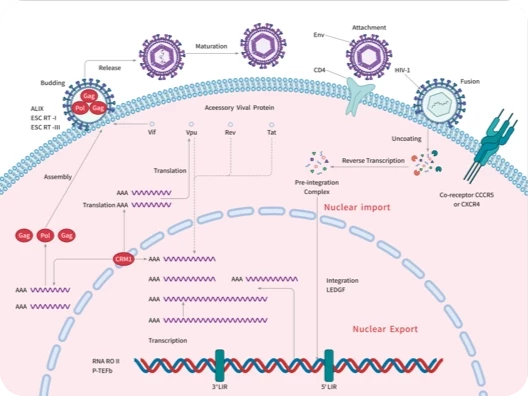

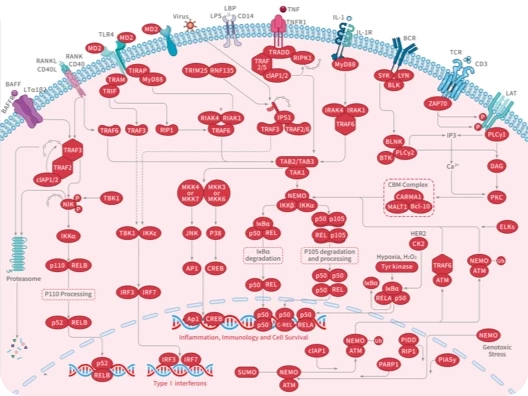
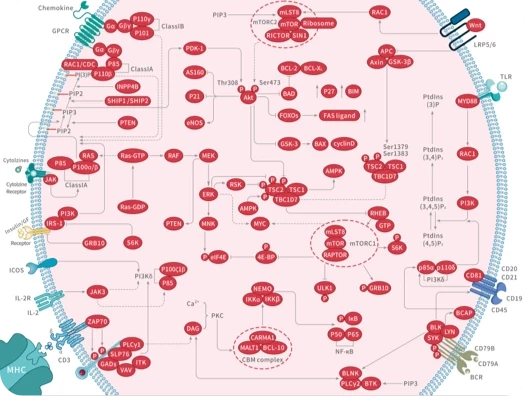
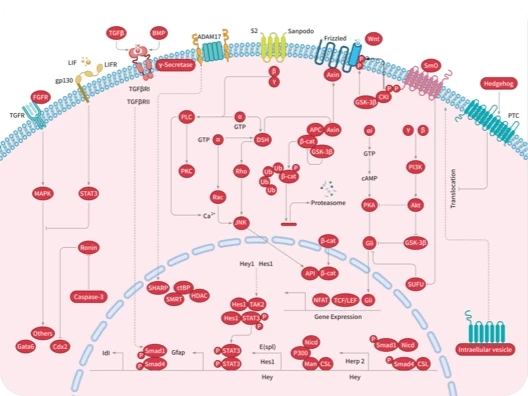
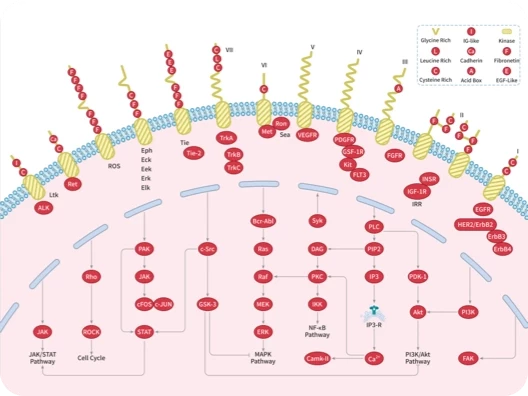
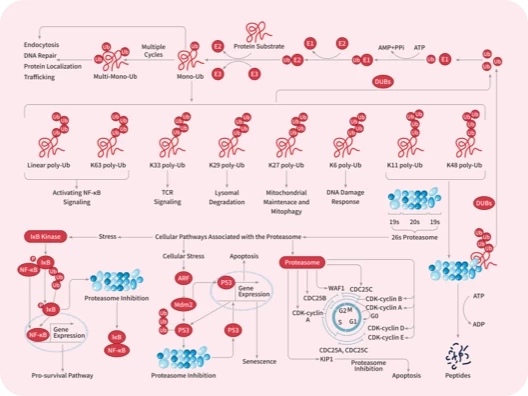

 |
|